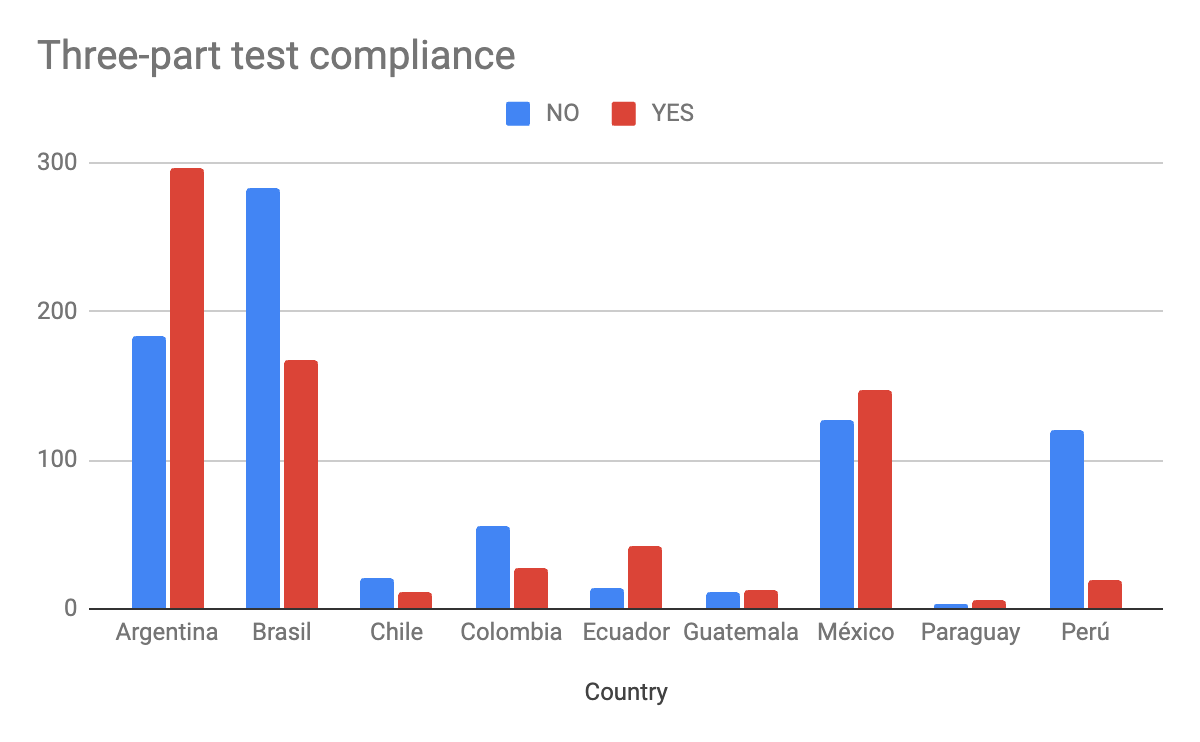What Latin America’s Legislative Trends Can Teach Us about The Future of Free Speech
As Latin America races to implement European-style digital regulations, vital human rights safeguards are being left behind.
Editor’s Note: At The Bedrock Principle, we are pleased to present this guest essay from experts at Centro de Estudios en Libertad de Expresión (Center for Studies on Freedom of Expression, or CELE). Their work is critical for protecting the fundamental right of freedom of expression in Latin America, and their recent projects tracking legal threats around the region are vital to our shared goal of reversing the free speech recession. The following essay will chronicle this effort.
As debates on digital governance intensify across Europe and North America, Latin America has quietly become a testing ground for some of the most ambitious—and controversial—regulatory proposals affecting freedom of expression online. From expansive hate speech legislation to sweeping content moderation mandates, lawmakers across the region are advancing a legal agenda that deserves global attention.
At the Center for Studies on Freedom of Expression (CELE), our Legislative Observatory has tracked over 1,700 legislative proposals across nine Latin American countries from 2012 to 2025. The emerging picture is both revealing and troubling: 67% of these bills restrict freedom of expression, and nearly one-third criminalize certain forms of speech.
While most of these bills do not become enacted into law, the volume and intensity of regulatory attempts offer a window into the evolving discourse on free speech in the region—and a mirror for many of the same debates unfolding in other regions.
A Regionwide Regulatory Turn
Among the most frequent targets of legislative regulation in Latin America are proposals addressing hate speech and discriminatory discourse, with 371 bills introduced to date. These are followed by initiatives that directly touch on freedom of expression and political rights (239 bills), as well as those focused on improving or restricting access to public information (230). Finally, a significant number of proposals aim to regulate issues related to child protection (197 bills) and privacy rights, particularly concerning access, rectification, cancellation, and opposition (ARCO rights), with 131 bills falling into this category.
While some of these proposals seek to promote legitimate public interests, such as protecting vulnerable populations or addressing online harms, many fail to meet international human rights standards, particularly the three-part test established by the Inter-American Human Rights system (legality, necessity, and proportionality). Alarmingly, less than half of the bills that restrict freedom of expression comply with the test. Nevertheless, it varies from country to country, as shown in the chart below:
Modeling the European Union—Without Its Safeguards
As we have addressed in a recent paper on regulatory modeling, Latin America is increasingly looking to the European Union’s Digital Services Act (DSA) as a blueprint for regulating digital platforms. Several proposals explicitly reference the DSA, while others borrow its language, concepts, and structure, such as risk assessments, intermediary obligations, and transparency measures.
While the DSA may serve as a blueprint for platform regulation, the bills proposed in Latin America reveal an emerging trend that raises freedom of expression concerns.
The DSA was the result of years of expert negotiation, cross-sector collaboration, and a robust institutional infrastructure. However, this is not necessarily the case for some countries in the region that are trying to replicate it. They lack the institutional architecture required for its effective implementation, as well as the technical and financial resources, which are factors that should be taken into account by legislators. In some cases, local adaptations cherry-pick the DSA’s most controversial measures—such as risk mitigation obligations—while omitting critical protections like intermediary liability limitations, procedural fairness, and user redress systems.
Furthermore, the risk-based approach of the DSA stands in stark contradiction with Inter-American standards on freedom of expression. There is also the issue of time: replicating a regulation like the DSA without waiting for it to be fully implemented in order to identify blind spots or undesired consequences entails replicating its pitfalls as well.
Why This Matters to the Global North
The legislative push in Latin America is not occurring in isolation. It reflects a global trend that questions the existing legal frameworks, or their absence thereof, on digital platforms’ responsibility, especially those run by Big Tech companies, and calls for greater obligations on their part regarding a panoply of subjects.
These trends also show how regulatory models travel—and mutate—across borders, often shaped by local political dynamics, weak institutions, or limited judicial oversight. The DSA may have been conceived as a rights-based framework (an idea CELE contests), but in many Latin American legislative proposals, its core ideas are being repurposed in ways that could undermine the very values it was meant to protect.
This uncritical adoption of DSA-inspired language is especially problematic because the DSA is not a standalone law—it’s a complex ecosystem of interdependent elements, each requiring robust implementation capacity. In the EU, enforcement depends on regulators who can process vast amounts of platform data, academic and civil society actors with legal and technical expertise, and an institutional culture of trust and accountability. These preconditions simply don’t exist in many Latin American jurisdictions.
Instead, legal “transplants” that extract obligations without enabling conditions are becoming commonplace—laws that mimic EU language but lack the systemic safeguards that make it work. The result is a hollow version of the DSA: high on demands, low on enforceability, and a framework that, similar to the DSA, does not see the State as a potential source of risk.
A Complex Reality
At CELE, we are closely following the rising trend of legislative proposals that, under the guise of managing so-called digital risks, restrict freedom of expression in ways that are not compatible with regional or international standards. Our Legislative Observatory and recent research on regulatory modeling highlight how pervasive and often imprecise these initiatives are.
But that is not the whole story.
Across Latin America, civil society organizations, academic institutions, and independent experts continue to play a vital role in challenging these trends. They engage with policymakers, defy disproportionate proposals, and promote rights-based frameworks—often drawing from global standards and rich local legal traditions.
The region is not just a site where problematic ideas travel to; it is also a space of critical reflection where a rights-centered approach to digital governance is still actively being defended and reimagined. Understanding Latin America’s legislative dynamics means holding both truths at once. If global conversations on freedom of expression are to be meaningful, they must account for this complex reality.
Matías González Mama is a Senior Researcher at CELE and the Coordinator of the Legislative Observatory. He is also co-editor of the topic "Media and Big Tech Governance for the Public Sphere" for the journal "Frontiers in Communications."
Juan Martín Marinangeli is a Research and Communications Assistant at CELE. His research interests lie in the intersection of public policy and digital media.





